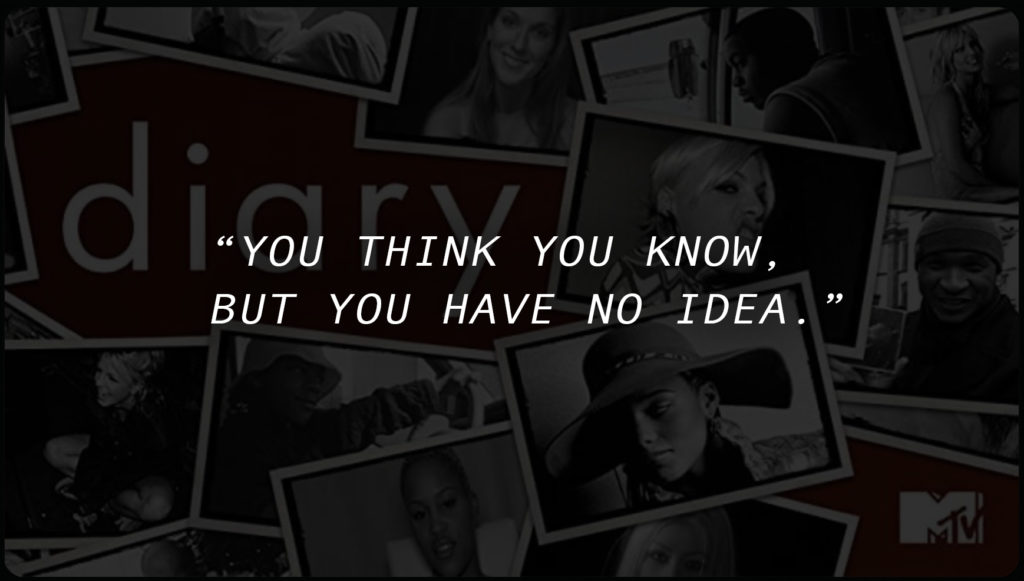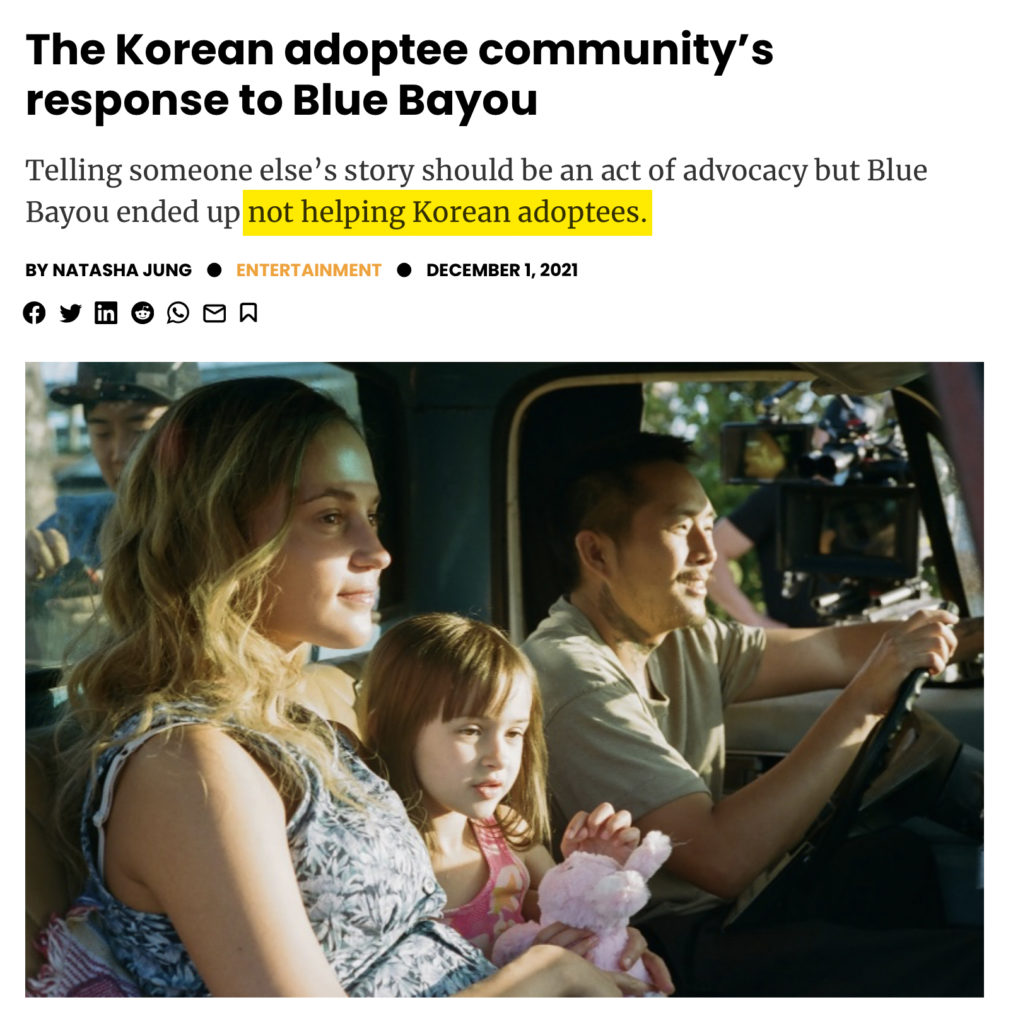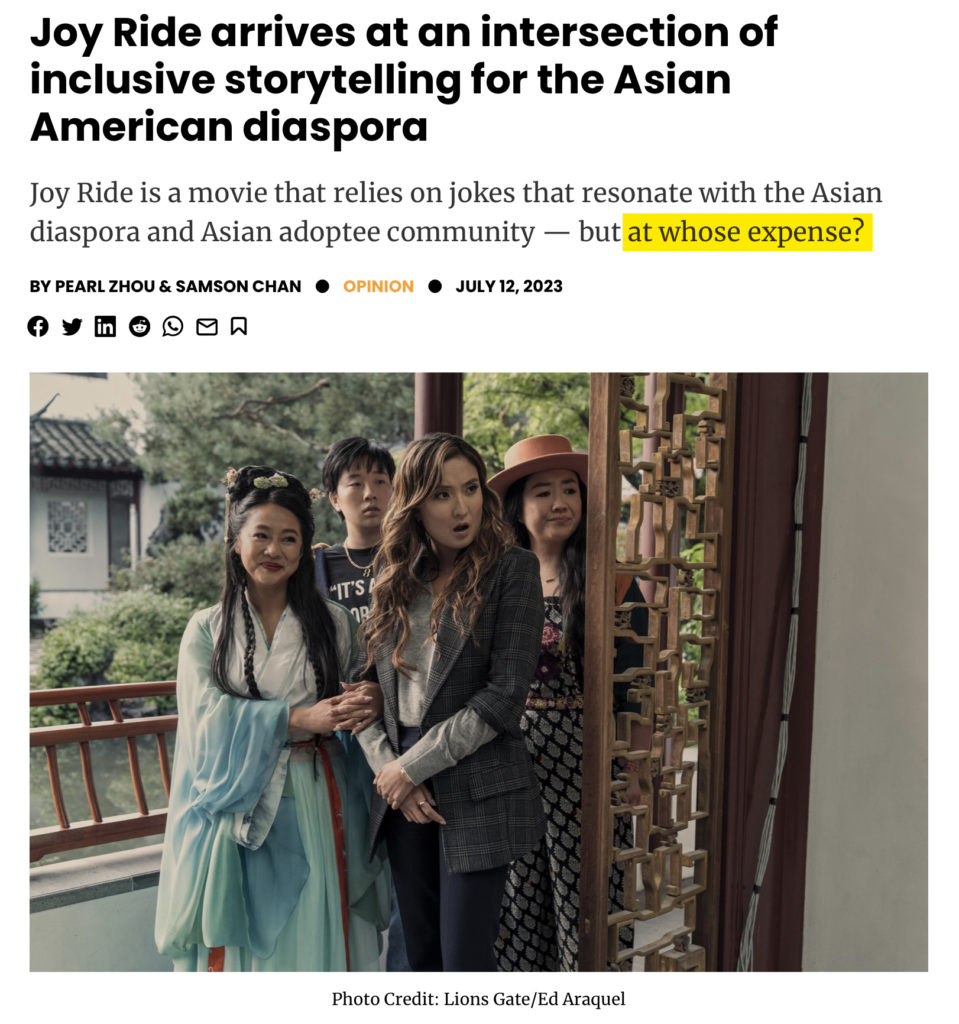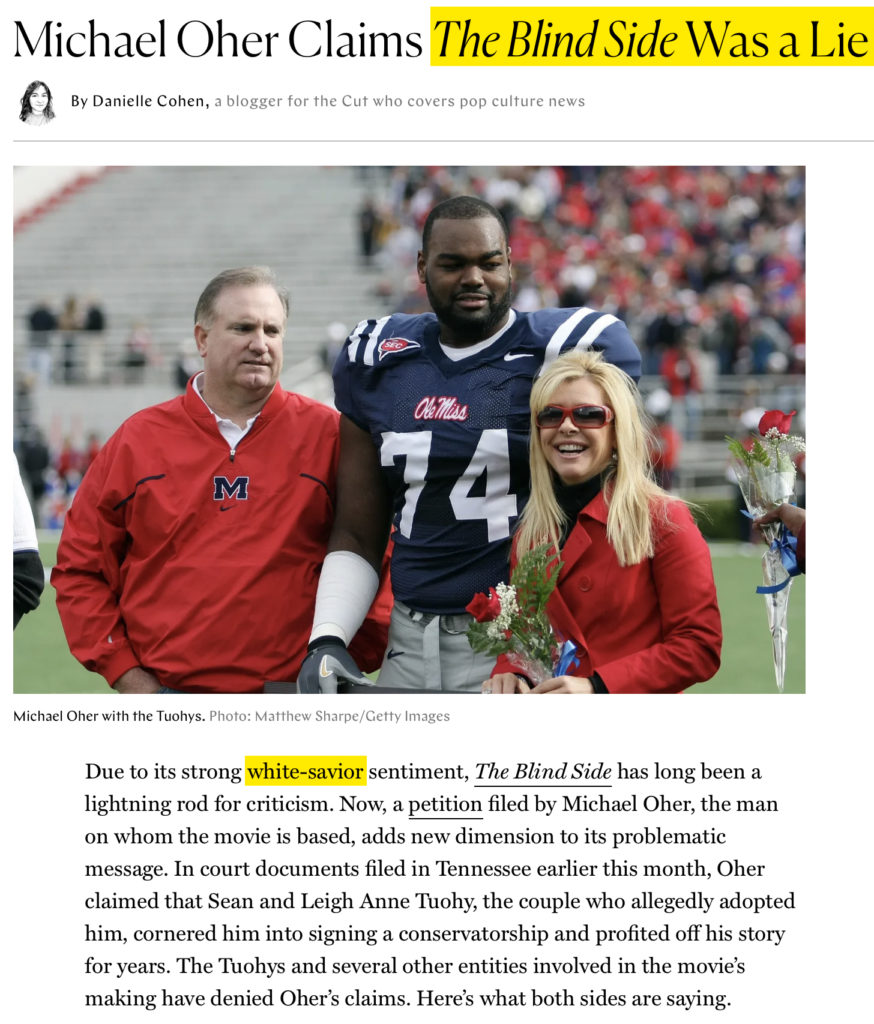Orphans and adoptee characters are a staple in storytelling.
Moses, Peter Pan, Mowgli, Tarzan, Aladdin, Annie, Harry Potter, Batman, Superman, Tom Sawyer, Jane Eyre, Anastasia, Luke Skywalker, John Wick, Bella Baxter, and countless other examples.

Adoptees are real human beings with lives full of nuance and complexity. Together, adoptees have formed a tight-knit global community, connected by the unique lived experiences and trauma of being raised outside our biological classes, religions, cultures, and races.
But to storytellers, we are “The Orphan Trope.”

When I was in gradeschool, two teachers found out I was adopted. They immediately said that my birth parents “loved me very much,” and that they were “somewhere out there” trying to find me, and that once we were reunited, we would be a “real family” again.
Two minutes prior they had no idea I was adopted. Yet all of a sudden, they were certain that some strangers who they had NEVER EVEN MET before, “loved” me?
It was the happily-ever-after reunion story that those teachers had seen many times before in films, TV, books, where the orphan finally connects with their birth family and is welcomed with teary eyes and open arms…
But what do these stories teach adoptees in real life?
That my adoptive family is not “real.”
That “Love” is cheap.
That “Love” = abandonment.

THE HEROIC ORPHAN: The prevalence of stories where orphans go from the darkest of beginnings to happily ever after endings has caused society (and adoptive parents) to put pressure on adoptees to thrive. As a result, adoptees who share stories about their experiences that are complicated or not super positive often receive backlash.
THE HEROIC ADOPTIVE PARENTS: Since most adoption themed media is told from the adoptive parents’ perspective and often portrays adoptive parents as if they can do no wrong, parents are seen as the authority on adoption matters instead of the people who live it – adoptees.
Due to this bias, adoptees are ignored when we speak out against harmful legislation, and the desires of adoptive parents are given preference when it comes to adoption law, at the expense of adoptee safety and health.
THE EVIL ORPHAN: This troubling trope, which is also told from the perspective of the heroic adoptive family, views adoptees as untrustworthy, damaged, and well… evil. [The Omen (2006), 666: The Child (2006), Brightburn (2019), Orphan (2009)]
This unfortunately causes people to view adoptees in real life as untrustworthy or mentally ill. Due to this bias caused by media, Adoptees who report that their adoptive families are abusive are much less likely to be believed. Instead, authorities defer to the heroic adoptive parents, sometimes until it’s too late.

THE POOR LITTLE ORPHAN: The depiction of Orphans as pitiable characters who later express gratitude when they are “saved” by the heroic adoptive parents. It’s not uncommon for adoptees to be met with pity when we mention we were adopted. And if we don’t pretend to be the cute, sympathetic, grateful orphan, then our safety can be threatened.
It’s absolutely wild, but I’ve lost count of the amount of times people got ANGRY with me after I told them I was adopted, and then refused to agree with their opinions about how I should feel about it. Someone got so upset that they tried to get me fired from my job. Strangers have shouted at me, told me they’ll pray for me as if that’s a threat (???). The teachers I mentioned earlier? They went on to interrogate and berate me in an isolated room away from other students until I promised them I’d spend the rest of my life searching for my “real” family. I was in tears by the time they opened the door.
Why Us? Why Now?
The orphan/adoptee community stands out as the only group deemed by society as unfit to speak for ourselves. Despite this, orphan/adoptee stories are incredibly widespread, featuring prominently in nearly every film or series. Paradoxically, while our stories are prevalent, we’re not perceived as a community; instead, we’re reduced to being seen merely as a recurring trope.
In the wake of Joy Ride (2023)’s smash blockbuster success which was met with mixed reviews from the adoptee community, the controversial revelation that Oscar-winning flick The Blind Side (2009) was (allegedly) all a lie, and the controversial backstory of Blue Bayou (2021) (allegedly) stealing an actual adoptee story for profit, I found myself shouting into the Hollywood abyss – LET ADOPTEES TELL OUR OWN STORIES!!!
WE ARE NOT A TROPE.
Across the world, adult adoptees have their own voices and own truths. The adoptee community is thriving, and full of talent. We do not need community outsiders speaking for us when we have our own #ActualAdoptee voices! Stories with an unparalleled, rare perspective and nuance that have a lot to offer in today’s chaotic world.
Furthermore, Asian representation in media is having a long-awaited surge in popular culture. FORK MOUNTAIN’s plot and themes specifically call out the history of yellowface in Hollywood as well as Hollywood’s mishandling of Asian roles and whitewashing of Asian characters. As much as we celebrate our wins, we cannot forget our history! FORK MOUNTAIN is a reminder of how far we’ve come and how much work there’s left to do.
FORK MOUNTAIN focuses on the systemic issues that lead to the perpetuation of racism within the specific context of majority white suburban American towns all across the US. While films may often make broad statements about racism in society or racist individuals, the scenarios in FORK MOUNTAIN break down the ways in which the seeds of racism are cultivated in white America – often in the most seemingly innocuous ways. FORK MOUNTAIN demonstrates how diverse on-screen representation can make a big difference in these diversity deserts.


